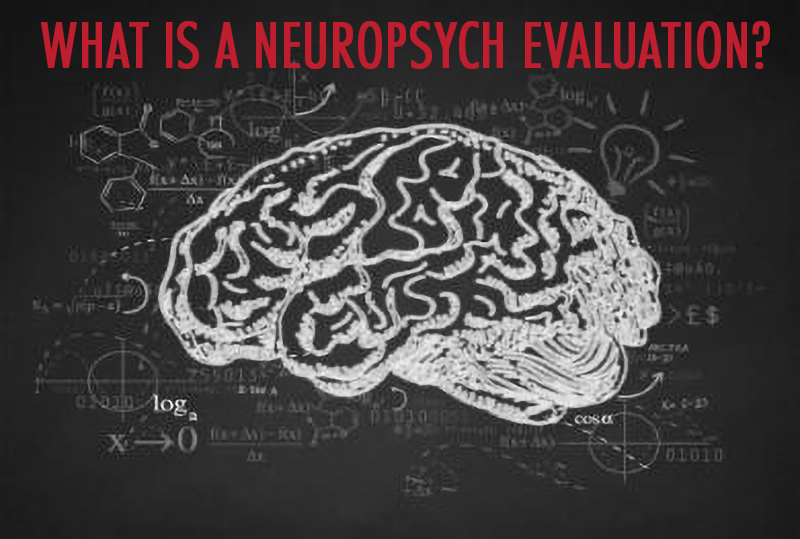
What Is a Neuropsych Evaluation?
By Thomas A. Crosley, Crosley Law
Brain injury can deeply impact how you think, make decisions, process information, and interact with others. When someone else caused your injuries, you deserve compensation for these losses.
However, it can be hard to explain or document symptoms like memory loss, poor concentration, or impulsivity. In these cases, neuropsychological testing can help you, your medical team, and your personal injury lawyer understand the full effect of your traumatic brain injury (TBI).
What Is Neuropsychology?
The field of neuropsychology studies how our brains’ health impacts our emotions and behavior. Our brain is a remarkably complex organ, made up of nerves and tissues that help us feel, think, and perform everyday tasks. When there’s neurological dysfunction due to trauma, brain tumors, and diseases like Alzheimer’s, we may experience emotional and intellectual changes. Sometimes, these changes are subtle, like minor memory problems and mental “fogginess.” Other times, neurological issues create profound personality changes, cognitive deficits, and impaired decision-making.
Different parts of the brain serve different functions. For example, the temporal lobe helps with our short-term memory, and the frontal lobe controls our memory, decision-making, and judgment. Depending on the location of your brain injury, you may exhibit different symptoms that affect your thinking, speech, vision, memory, and interpersonal relationships.
A neuropsychological evaluation measures your emotional and cognitive abilities and compares them to the average person of your age, education, and background. An evaluation will typically consider a wide variety of factors, including:
The evaluator may also look for other possible diagnoses, including depression, anxiety, or post-traumatic stress disorder. Finally, the evaluator will typically assess your performance and symptom validity; this process makes a neuropsych evaluation more objective than some other cognitive and mental assessments.
Using Neuropsychological Testing to Assess the Impact of Brain Injury: A Case Study
A neuropsychological report can help your doctors, lawyers, and mental health providers understand the full impact of your brain injury, which allows them to build effective treatment plans and fight to get you the compensation you deserve.
Let’s look at a real-world example of how a neuropsych examination can help a TBI survivor’s legal claims. I represented a young man with an autism spectrum disorder who was struck by a delivery driver’s car while walking home from his job at a grocery store. During the collision, my client suffered significant brain injury, but the insurance company argued that his cognitive and memory deficits were due to his preexisting autism.
To fight back, we consulted with his medical providers and a neuropsychologist who helped document his trauma-related symptoms and limitations. After mediation, we settled my client’s TBI claim for a significant amount.
What Should I Expect During a Neuropsych Evaluation?
During a neuropsychological evaluation, a team of clinicians, including a trained neuropsychologist, will give you a series of tests that assess your thinking abilities, language skills, memory, mental processing, and other abilities. You can expect to do a variety of tasks, including:
Some tests will be oral, while some will be written, computer-based, or task-driven. The precise tests used during your neuropsychological evaluation will vary depending on your diagnosis and other factors.
However, not all neuropsychologists focus on brain injuries. A specialist who mainly works with dementia patients or another population might offer as detailed and insightful analysis when evaluating a TBI. If you are selecting a neuropsychologist, make sure they understand and regularly work with people with brain injury.
How Long Does Neuropsych Testing Take?
A neuropsych evaluation will take up to eight hours to complete. Typically, you’ll be able to take breaks as needed. If you become too tired or overwhelmed, the evaluator may split the testing over several days.
What Happens After I Complete My Evaluation?
Once you’ve completed your testing, the neuropsychologist will review your results, medical records, and other information to create a comprehensive report that discusses your cognitive abilities and limitations. If the neuropsych evaluation was scheduled as part of your TBI care plan, the process will include treatment recommendations and referrals to specialists, like speech therapy and counseling services.
However, if an insurance company requested your neuropsych evaluation, it might serve a different purpose. Sometimes, “independent medical examinations,” including neuropsychological testing, are used to deny or reduce the value of a TBI survivor’s legal claims.
For example, the insurance company may argue that your performance validity or symptom validity scores suggest you’re exaggerating symptoms. Rather than recommending treatment that will help you overcome your traumatic brain injury, the report will minimize your symptoms and suggest that you’re malingering (pretending your problems are worse than they are).
To fight back, you’ll need to work with a personal injury lawyer who can carefully assess the evaluator’s methodology and identify issues and inconsistencies in their report. If you don’t already have an attorney, it’s a good idea to consult with a BIAA Preferred Attorney who has a documented track record of success.
How Can I Prepare for Neuropsych Testing?
While you can’t study for a neuropsych examination, there are some simple ways you can prepare for your appointment with the neuropsychologist:
Remember, as long as you are honest and give a good effort, you can’t “fail” a neuropsychological assessment.
Worried About an Upcoming Neuropsych Evaluation? Consult with a BIAA Preferred Attorney
If the insurance company schedules a neuropsych evaluation, it’s a good idea to consult with an experienced TBI lawyer. When you work with a BIAA Preferred Attorney, they can help you prepare for your examination, identify issues that may impact your legal claims, and fight back against an insurance company’s negative neuropsychological report.
To find a TBI lawyer in your community, visit the BIAA Preferred Attorney page and click on “Narrow Your Search.” You’ll be able to filter Preferred Attorneys by their location and practice area.
CLICK HERE to read the original article

